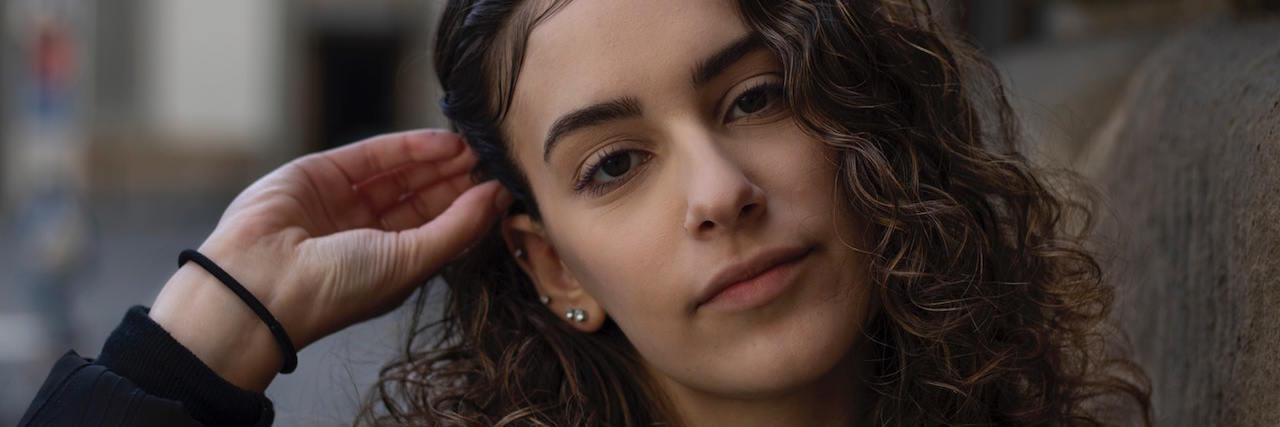As an Abuse Survivor, I Thought Being Mean Would Protect Me. It Didn't.
Editor's Note
If you’re looking for creative inspiration, check out the Daily Inspirations group on The Mighty.
The role “self” is often the role we think other people want to see, or the one that protects us. Your personality can get totally lost in the role self, and rediscovering the true self can take a lot of time and space in a safe environment. It’s very common for people who grew up in abusive families to play a role self. This can look like someone who keeps quiet and out the way as much as possible, or it can look like the person who is super responsible and kind, or the person who is aggressive, mean and out of control.
Growing up I played a role of being extremely quiet — I thought it was the best way to avoid abuse. I found it best that I did not share my thoughts or feelings to anyone. And if someone expressed an opinion that was different to my own, I would politely pretend I agreed. Even on matters as small as what kind of food I liked or what football team I supported (I hate sports).
This role self didn’t really work out for me. Particularly in the British comprehensive school system. I was pushed around a lot, picked on and ended up finding myself in an abusive relationship. When this relationship finally ended, my abuser seemed to delight in my pain over the breakup.
Everyone seemed to want to know that they could hurt me. And that they mattered to me in a negative way. So I put my wall up further. I wanted to get in first and show the world that nobody mattered to me. I acted like I didn’t care what people thought of me, so would act erratically and badly to prove it. I would say controversial things I didn’t really think just to prove I wasn’t concerned with the reactions of others. I did not remove myself from situations that were dangerous or harmful, because I wanted to prove I was strong. I smoked and drank heavily, because I didn’t care about my own body and wanted people to be aware of that. If I was slighted, I felt the need to punish and make the offending person feel as worthless as I felt.
Was this really me or was this acting? My role self became me. It became a huge part of my identity. In school it used to cause me a lot of pain to see other people get hurt or bullied, but now I had no sympathy for people who were “weak” and they reminded me of the person I was who I perceived as pathetic. My heart was hardening, for myself and others.
The problem with acting this way, is that behind this tough girl was a scared child in a lot of pain. But nobody could recognize that because our perception of “victims” doesn’t match the hard-coated assassin persona. And needless to say, the last thing I wanted to be perceived as was a victim. But still, I needed help because I was on my way to an early grave and I was in a tremendous amount of pain.
It took a lot of recovery to admit to myself and others that yes, there is a human being inside here with feelings. And the happier I got, the less I felt like being mean. Happy people don’t like hurting others, it doesn’t feel good.
I felt strong enough to admit that yes, you have hurt my feelings. And I’d quietly say to myself that the person who had hurt me was probably hurting inside as I was. I learned that truly strong people are okay with expressing their vulnerability. They’re strong enough for other people to see their weaknesses — and to risk an attack on a sore spot.
Nowadays, I try and be kind to people even if they have hurt me, or slighted me, or offended me. Because I really achieve nothing from being mean and putting on a tough façade. I gained nothing. I did not grow.
Being kind is not easy, even now. I find it hard to reach out to a friend, or give a gift because I am afraid of them rejecting me. During lockdown I put my unwanted books in a box outside for people to take, and I was so worried that nobody would want them or would think that it was a silly idea. But I still did it.
Being kind to me is what’s really strong and is the most tough girl thing of all.
Photo by Marshal Quast on Unsplash

